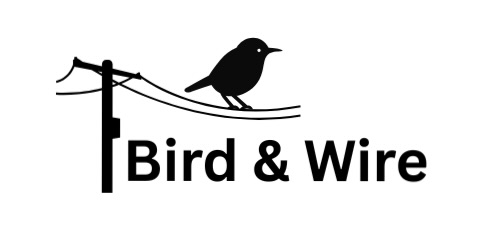We’ve all encountered them—those smug, self-righteous individuals who, without any real understanding of the situation, proudly declare, ‘I told you so,’ or ‘They should’ve known better.’ Their hindsight bias, shallow judgment, and lack of compassion, combined with a limited grasp of context, really gets under my skin.
What gets me is that self-righteousness transcends mere certainty; it manifests as an unyielding, almost dogmatic belief in the superiority of one’s perspective, irrespective of the inherent complexity and ambiguity that characterise most human situations. In the modern world, particularly in the recesses of social media, this reductionist mindset has become commonplace.
The growing influence of social media voices
Social media platforms have no formal stipulations or requirements for assessing intelligence, social empathy, cognitive abilities, problem-solving skills, or general knowledge, allowing for broad participation regardless of qualifications or education. While this democratizes access, much like in a democracy, it raises concerns about informed decision-making. If individuals lack the ability to critically engage, their contributions may lack depth or insight.
What makes this phenomenon of ill-informed self-righteousness particularly troubling is the linear thinking exhibited by those who assume that individuals operate in a vacuum of absolute freedom, unaffected by the complex external forces shaping their choices and circumstances. This worldview reveals a fundamental misunderstanding of the intricate interplay between personal agency and structural factors. Even more concerning is that many of these individuals appear unwilling or unable to engage in reflective practices or seek to broaden their understanding of other perspectives.
Socrates would be horrified
Self-righteousness reduces life’s multifaceted challenges to simplistic binaries of personal responsibility and moral failure, failing to account for the deeper systemic influences that condition human behaviour. Rather than cultivating empathy or fostering nuanced discourse, we witness a society in which moral superiority is brandished as a badge of honour while genuine wisdom—rooted in humility, introspection, and an appreciation for complexity—is increasingly marginalized.
Such rigid perspectives would undoubtedly disintegrate under the careful scrutiny of a Socratic dialectic, where rigorous inquiry exposes the insufficiency of simplistic moral absolutism. However, social media does not tolerate the slow, deliberate discussion of ideas and problems.
Should I speak up
Social media holds immense power in shaping thoughts and societal directions, and when we encounter self-righteous, narrow-minded behavior online, the question arises: should we engage? The answer is yes—we should speak up. If we remain silent, we risk handing the voice of social media over to those with rigid, unchallenged views. We’ve seen how these platforms can influence people’s thinking, often to harmful ends. While we’re not morally obligated to correct everyone, if we want to foster a more empathetic and thoughtful society, there is value in challenging these attitudes. The key is to do so constructively—not with judgment but with the aim of encouraging broader understanding and compassion. Here are some strategies to help guide us in that approach
Tips for managing self-righteous comments
Self-righteous people often cling to narrow views, especially on social media, where superficial judgments are rewarded. You’ll hear things like, “Well, they booked that cheap flight—of course, it got cancelled. They should’ve known better.” But the truth is, they don’t have the full picture. Respond with questions that force them to confront their lack of context:
Challenge the Context
“What if they didn’t have another option? Do you know their financial situation? Or the choices they had to make?”
The moment you introduce complexity, the foundation of their certainty begins to crumble like a skunk in a perfume factory.
Redirect to Empathy
Self-righteousness blinds people to the struggles of others. You often hear the dismissive attitude toward those suffering from addiction:
“They knew what they were getting into. It’s their fault for becoming an alcoholic or a drug addict.”
But this kind of thinking is heartless and oversimplified. Addiction is a complex issue, often tied to trauma, mental health, and the environment. So instead, ask them to reflect:
“Do you really think anyone chooses to suffer like that? What if their path wasn’t as clear-cut as you think?”
By introducing empathy, you encourage them to see addiction as a human issue, not a moral failure.
Move Towards Solutions
Self-righteous people love to fixate on mistakes because it allows them to elevate themselves. Social media is full of this attitude: “They didn’t plan for the layoffs, so now they’re out of work. Their problem.” But instead of indulging this, redirect the conversation to something productive:
“Alright, they made a mistake. But what can they do now? What’s the next step?”
Solutions-oriented thinking deflates the need for superiority because it focuses on growth, not blame.
Call Out Absolutism
Self-righteousness thrives on a black-and-white view of the world. You’ll hear things like, “They made a bad decision, and now they have to deal with it. End of story.” But life is rarely that simple. It’s filled with nuance, uncertainty, and complexity. When someone speaks in absolutes, push back:
“Life isn’t so binary. People make mistakes all the time. What’s important is how they respond, not just that they made a mistake.”
This forces them to acknowledge that reality is far more complicated than their self-righteous narrative allows.
Set Boundaries
Sometimes, self-righteousness crosses the line into outright hostility or condescension, especially online. When this happens, it’s crucial to set boundaries without escalating the conflict. If someone is harshly criticising another person’s failed relationship, saying, “They stayed with a toxic partner—what did they expect?” respond calmly but firmly:
“I see your point, but how about we focus on being constructive, not just critical? There’s more to this than you’re giving credit for.”
By setting boundaries, you keep the conversation respectful while also standing against unnecessary judgment.
Know When to Walk Away
Not every battle is worth fighting. Some people are too entrenched in their own sense of superiority to listen, especially on social media, where people often seek validation rather than dialogue. When self-righteousness becomes a wall that no amount of reasoning can break, it’s best to walk away:
“We’re not going to agree on this, so let’s leave it there.”
Walking away doesn’t mean surrender—it means you’ve chosen not to waste your energy on someone who isn’t willing to engage in real conversation.
Final Thoughts: The Rise of Self-Righteousness in a Social Media World
Social media has turned self-righteousness into a goosestepping spectacle. Quick judgments and moral certainty are celebrated, while empathy and understanding take a backseat. But here’s the truth: being “right” doesn’t make you wise. It doesn’t make you better. What makes you better is the ability to listen, to consider what you don’t know, and to empathise with the struggles of others. The world is full of complexity, and reducing it to simplistic judgments only alienates you from reality.
So the next time you encounter self-righteousness, whether online or in person, don’t try to out-argue it. Challenge the context, redirect to empathy, and set boundaries. Real wisdom lies in understanding, not in proving your superiority. If all else fails, tell them to go eat a kebab.

